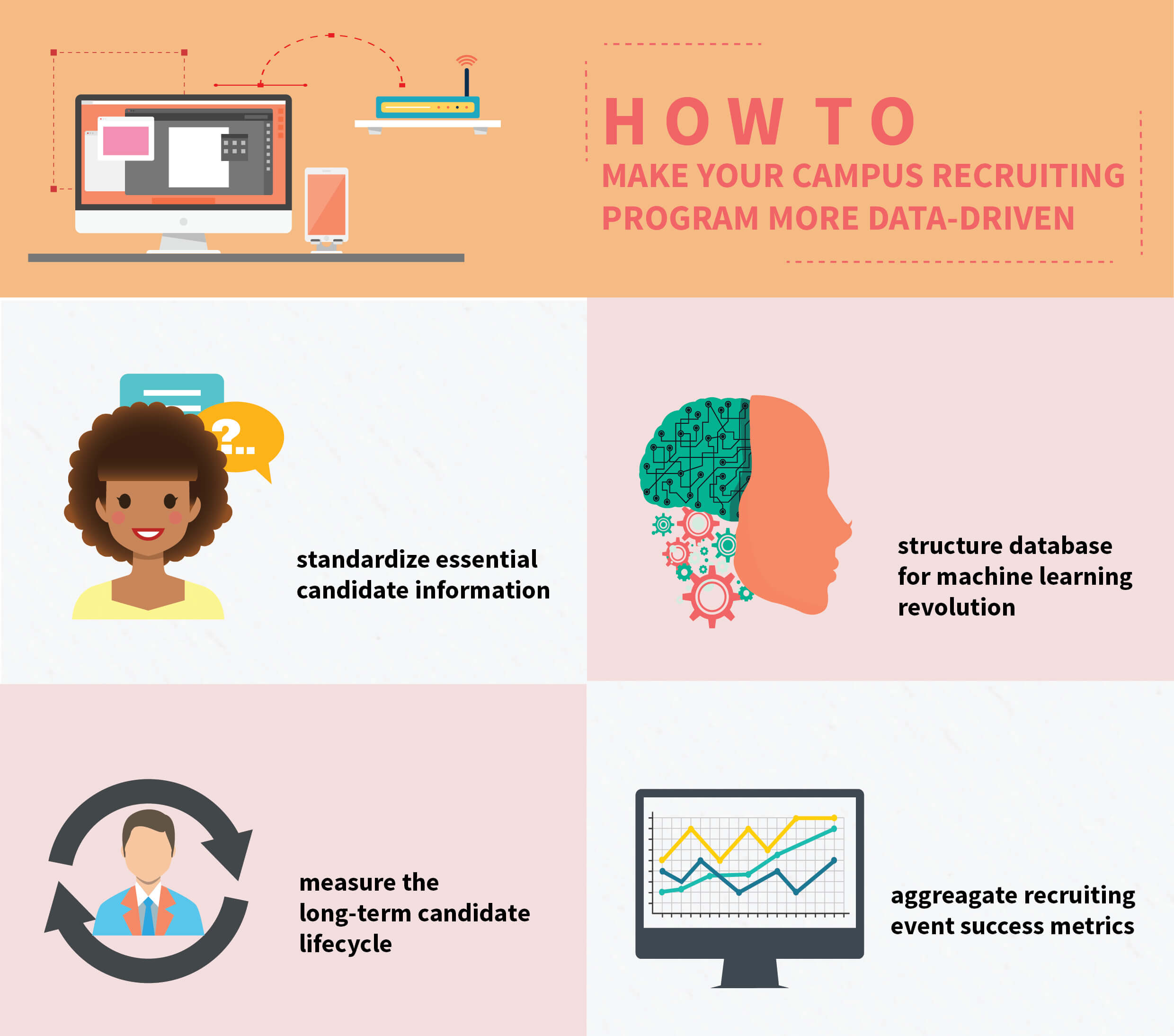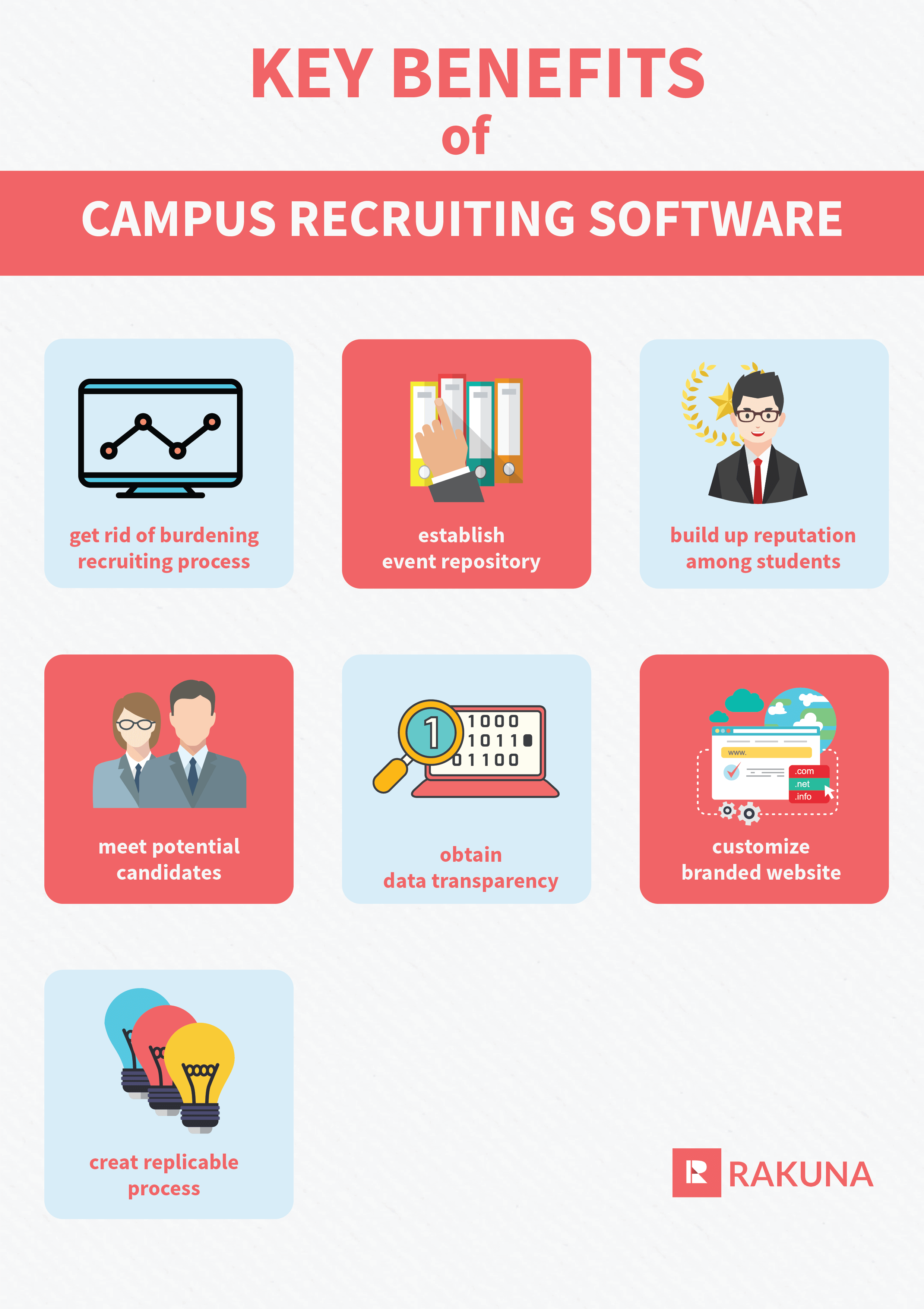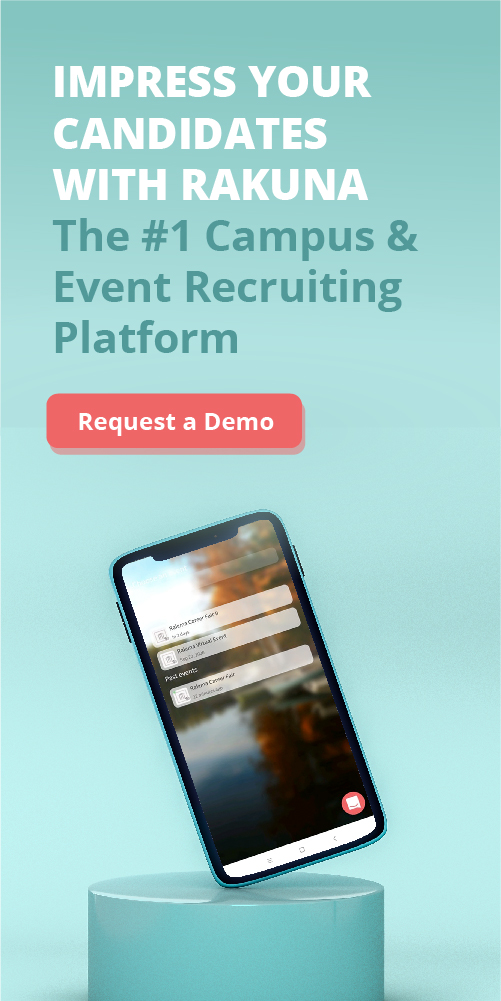How Is Big Data Changing Your College Recruiting Strategy?

Big data refers to the vast amount of information generated and collected in various processes. In recruiting, this includes data on factors such as the success rates of hires, the duration of the college recruiting process, the expenses incurred per hire, and the sources from which candidates are recruited, among others.
Harnessing this data-driven approach involves utilizing this wealth of information to enhance the college recruiting journey:
- Uncovering Insights with Big Data
Big data is changing how recruiters approach campus hiring. Instead of relying on guesswork, recruiters now use data analytics to make smarter decisions. They analyze trends, market dynamics, and student demographics to tailor their strategies effectively.
- Utilizing Third-Party Data Providers
Recruiters often turn to organizations like the National Association of Colleges and Employers (NACE) for valuable data. These providers offer insights into school selection, diversity strategies, and more. By using this information, recruiters can better understand their target schools and students.
- Leveraging Free Databases
Free databases, like the one provided by the U.S. Department of Education, offer additional insights into college demographics and programs. Recruiters can use these resources to enhance their research and gain deeper insights into their target audience.
- Tracking On-Campus Recruitment Data
Effective campus & college recruiting involves capturing and analyzing data from on-campus events. With tools like campus recruiting software, recruiters can collect data from career fairs and info sessions. This data helps them measure their return on investment and refine their strategies.
Do Your Recruiting Events Capture and Process Data to Improve ROI?
Before recruiting events, registration systems efficiently capture structured data about potential candidates. However, once the event begins, crucial information about attendee interactions and event effectiveness often remains elusive.
Questions arise: Are recruiters engaging with enough targeted students? Are attendees having positive experiences with the staff? What is the caliber of candidates present? Which events or schools should recruiters prioritize?
Data holds the answers. It provides insights into the “why” behind recruitment decisions. Why choose one school over another? Why attend a specific event? Why select certain representatives?
Effective university & college recruiting software empowers recruiting teams of all sizes to gather structured student data, address these critical questions and optimize event strategies for improved ROI.
Related reading: Transform Your Student Program With This Compact Guide
Key Metrics to Evaluate Efficiency

When beginning any recruiting endeavor, a crucial question to ask is:
“How do we gauge our return on investment?”
To optimize your university & college recruiting program, you require clear, measurable objectives and reliable data to assess your progress. Whether a recruitment campaign surpasses expectations or falls short, the insights gained can significantly enhance future recruitment strategies.
- So, how do you evaluate the success of a recruitment program? Let’s explore several key metrics that can illuminate areas of improvement and areas of success:
- Interviews Per Hire: This metric reveals the efficiency of your hiring process. Ideally, there should be a balance between the number of interviews conducted and the hires made. A high number may indicate communication gaps or misalignment between HR and hiring managers.
- Cost Per Hire: Total recruitment costs divided by the number of hires provide insight into the financial efficiency of your efforts. While important, this metric should be supplemented with other indicators to gauge overall success.
- Performance of New Hires: Assessing the performance of new hires helps evaluate the effectiveness of your recruiters. Metrics such as performance evaluations and promotion rates can offer valuable insights into their ability to meet organizational needs.
- Turnover Rate: High turnover rates can signify recruitment challenges or organizational issues. Calculating turnover rates, particularly within the first year of employment, can highlight potential problems in the recruitment process.
- Candidate Satisfaction: Ensuring a positive candidate experience is crucial for attracting top talent. Surveys and feedback mechanisms can help gauge candidate satisfaction and identify areas for improvement in the recruitment process.
- Quality of Source: Evaluating the effectiveness of recruitment sources is essential for targeting the right candidates. Analyze the skills and backgrounds of candidates from different sources to assess their suitability for your organization.
Enhancing Your College Recruiting Program with Data-Driven Strategies
The recruitment landscape continues to evolve. Platforms like LinkedIn are increasingly targeting university & college students through new applications, while FaceBook and X(formerly Twitter) continue to update their websites to produce insightful analytics. In this digital era, the footprint of young talent is shaping more informed hiring decisions.
To stay ahead, university & college recruiting teams must embrace data-driven approaches. By combining ground-level efforts with robust data analysis, recruiters can create a well-oiled hiring machine. Collecting and analyzing both online and in-person data fosters less biased hiring decisions.
Here are actionable steps to infuse data into your university & college recruiting program:

Standardize Essential Candidate Information
Agree on essential information and key questions for all candidates. Ensure uniformity in data collection by all on-site representatives at meetups and career fairs. This establishes a baseline for candidate information and facilitates more objective comparisons.
How to Enhance Your Data-Driven College Recruiting Program:
Identify two or three essential questions that candidates from each college must answer. These questions should align with the overall needs of your business and specific departments. Standardizing this information collection process will ensure greater uniformity and accuracy in your candidate data.
Structuring Your Database for the Machine Learning Revolution
As machine learning continues to evolve, it’s essential to prepare your database structure for future growth and optimization. By setting up your database with scalability in mind, you can leverage the power of machine learning algorithms to enhance your hiring processes.
To start, consider what qualities and skills you prioritize in your hiring efforts. By mapping these attributes to a scoring system, you can make more objective decisions and reduce reliance on subjective factors like gut feeling or emotion. For instance, you might rate candidates based on both hard and soft skills, ensuring a comprehensive evaluation process.
Consider following these best practices:
- Identify Top Skills: Compile a list of the top five hard and soft skills that your company values most in candidates. These skills should align with your organization’s objectives and the specific needs of each department.
- Collaborative Decision-Making: Host meetings with key stakeholders to discuss and finalize the list of required skills. Ensure consensus on the essential attributes that candidates should possess to succeed in their roles.
- Database Structuring: Implement a database structure that accommodates the scoring system for evaluating candidate skills. This structured approach will enable consistent and objective candidate assessment across your university & college recruiting efforts.
Aggregate Recruiting Event Success Metrics
Hiring events are pivotal in attracting new candidates, making hires, and boosting brand awareness for your organization. However, to optimize your recruitment budget and strategy effectively, it’s crucial to measure the return on investment (ROI) for each event.
Why is it so important to measure ROI?
- Optimization: Without analyzing ROI per school, event type, and recruiter, it’s challenging to optimize your recruitment budget effectively. You can allocate resources more efficiently in subsequent years by identifying which events yield the highest ROI.
- Data Organization: Recruiters must centralize event data and categorize it based on various parameters, such as university, employer performance, and event type. This organized approach facilitates informed decision-making when selecting future events and investment strategies.
How to start measuring
- Cost Analysis: Evaluate the cost associated with each candidate and hire for every event you participate in. This analysis provides valuable insights into the effectiveness of different recruiting initiatives and allows for better resource allocation.
- ROI Calculation: Calculate the ROI for each event by comparing the costs incurred with the benefits gained, such as new hires and brand exposure. This quantitative assessment enables you to prioritize high-impact events and optimize your overall recruitment strategy.
- Continuous Improvement: Use ROI data to inform future decision-making processes, including event selection, budget allocation, and recruitment tactics. By iteratively refining your approach based on data-driven insights, you can enhance the effectiveness of your university & college recruiting program over time.
Measure the Long-term Candidate Life Cycle

In today’s competitive talent landscape, businesses must prioritize nurturing relationships with potential candidates even before they are officially hired. By considering the entire life cycle of a candidate, organizations can gain a competitive edge by remaining a top-of-mind employment option when students enter the workforce.
Why Should You Measure Long-Term Candidate Engagement?
- Competitive Advantage: Building and maintaining relationships with candidates ensures that your organization remains at the first option when they are ready to enter the job market. This positions you as a preferred employer and gives you an edge over competitors.
- Candidate Growth: Assessing candidate interactions, such as email open rates and engagement with your organization, provides insights into their potential growth as future employees. Understanding their journey from prospects to hires allows for more targeted and effective recruitment strategies.
How to Make This Process More Data-Driven:
- Identify Key Touch Points: Determine the critical stages in the candidate life cycle where interactions with your organization are most impactful. These touch points may include initial outreach, engagement events, interviews, and post-offer communications.
- Personalized Engagement: Tailor your communications with long-term candidates based on their preferences and interests. Whether it’s standardized emails or personalized messages, ensure that your interactions resonate with each individual to maintain engagement and interest.
- Data-driven Decision Making: Utilize data analytics to track and analyze candidate interactions and behaviors over time. Measure metrics such as email open rates, event attendance, and conversion rates to gauge the effectiveness of your engagement efforts and adjust your strategies accordingly.
But Most Important of All – Adopt a Campus Recruitment Software
As we have discussed, the pre-event registration platform can help you collect critical data on potential candidates. But how can you efficiently collect data once you hit the ground running at your event? That’s when campus recruitment software comes in:

Simplify Recruiting Processes
Campus recruiting events often involve a lot of time and effort for recruiters. Managing all the information, deciding on key messages, and handling candidate interactions can be overwhelming. Campus recruiting software makes this easier by giving recruiters one central place to manage events, standardize staff interactions, and handle attendee management and follow-up. This means no more dealing with paper resumes and spreadsheets – everything is organized efficiently.
Related Reading: How to Correctly Accept Paper Resumes at Career Fairs
Centralize Event Information
With campus recruiting software, HR teams can keep track of event materials, venue details, and staff information all in one place. This makes it easy to delegate tasks, boost attendance, and follow up with candidates after events.
Ensure Transparent Event Data
Measuring ROI is crucial for campus recruiters. Campus recruiting software provides tools for tracking event data, allowing HR teams to measure the ROI of each event accurately. This helps recruiters allocate resources effectively and identify which campuses and conferences offer the best returns.
Establish Consistent Processes
Implementing consistent processes is key to success in campus recruiting. Campus recruiting software helps organizations formalize their recruitment programs, ensuring consistency and smooth event management across different campuses. This reduces confusion and improves the overall candidate experience.
Reach Candidates Anywhere, Anytime
In today’s mobile-focused world, it’s crucial to connect with candidates on their devices. Campus recruiting software lets recruiters reach potential candidates on their mobile phones, providing a seamless experience throughout the job search and application process. This is especially important for attracting younger generations attending campus recruiting events.
Customize Your Company’s Website
Having a branded career website is essential for attracting top talent. Campus recruiting software helps companies create personalized websites for each college or event they attend. Candidates can visit these sites to view job openings, learn about company culture, explore benefits, and check out employee profiles – all in one place.
Enhance Your Company’s Reputation
Impress candidates with the latest technology offered by campus recruiting software. By streamlining the hiring process, recruiters can provide a more engaging experience and eliminate outdated communication methods. Storing insights from events in a central repository also helps recruiters improve their reputation among candidates.
What to Consider Before Choosing a Campus Recruiting Software

Ready to find a qualified campus recruitment solution for your team? Choosing the right campus recruiting software can seem overwhelming, but with the right guidance, you can find the perfect fit for your company’s needs. Here are some key considerations to keep in mind:
- Cloud-Based Infrastructure
Opt for cloud-based software for ease of use, minimal IT support, and lower total cost of ownership. Ensure data hosting aligns with your company’s locations and privacy requirements.
- Browser Compatibility
Ensure the software works seamlessly across all browsers your HR team uses, including desktop and mobile devices.
- Mobile Accessibility
Choose software with mobile apps that allow HR teams to access recruitment tools from anywhere, facilitating quick and easy recruiting processes.
- Total Cost of Ownership (TCO)
Consider the long-term costs beyond initial setup, including training for staff, yearly or monthly subscription fee (inclusive of all users), support, maintenance, new career site or integrating a job-board within your existing career site/website, onboarding module cost (if necessary), integration with your HRMS or payroll (if necessary)
- Request-to-Recruit Workflow
Look for software with a request-to-recruit module to streamline approval processes and eliminate manual data entry.
- Integration with Career Site
Ensure the software integrates with your company’s career site to promote your brand and streamline candidate application processes.
- Onboarding Options
Choose software with an onboarding module that integrates seamlessly with the recruitment process, offering automation for contract generation, notifications, and digital signing.
- Ongoing Support
Select a provider that offers comprehensive support, including service hours, language options, service levels, and transparent pricing to avoid hidden costs.
The Best Campus Recruiting Software Picked for You – Rakuna

Rakuna is revolutionizing campus recruiting with its innovative platform designed to help employers connect with and recruit top young talent. Here are some key features of Rakuna Recruit App:
- Fully engaging experience: Impress student candidates with paperless technology, eliminating manual processes for conversing and connecting.
- Instant and easy data access: Intuitive design requires no training, making career-fair experiences seamless and enjoyable.
- Professional and streamlined solution: Utilize a paper-free, eco-friendly smartphone app to connect with college students and impress colleagues.
With the Rakuna Recruit Mobile app, recruiters can instantly capture prospective candidates’ information, use customized evaluation forms to gather additional data, and rate candidates in real-time during conversations.
Rakuna Recruit Dashboard enhances your college recruiting strategy in the following ways:
- Making your game plan: Collaborate with teams to establish common goals, forms, and questions for all candidates, and track time, staff, and attendees in advance.
- Engaging top talents: Connect with applicants using standard forms to streamline administrative tasks and focus on discussing career options with millennials.
- Beat the competition: Gain a competitive edge by accessing information instantly, browsing resumes, and following up with preferred candidates.
With Rakuna Recruit Dashboard, recruiters can access comprehensive metrics reports, design evaluation forms, collaborate with hiring managers and recruiting teams, and customize automated follow-up emails to enhance candidate relationship management.
Ready to see Rakuna in action? Book a FREE demo with us today!

